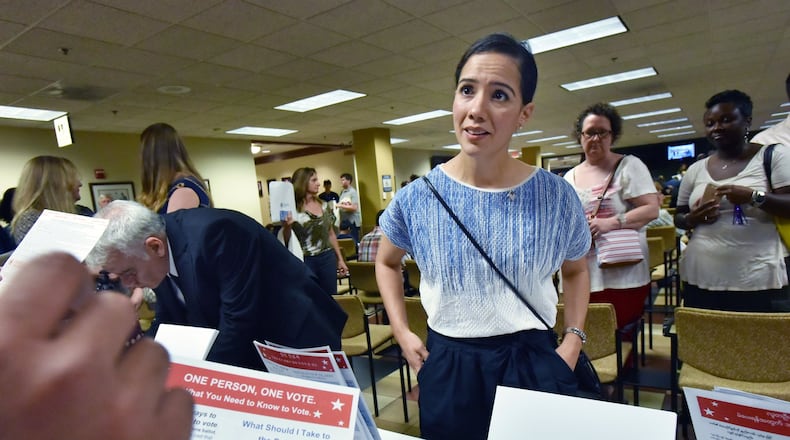A federal appeals court panel, which earlier this month blocked Georgia, Alabama and Kansas from requiring proof of citizenship for residents registering to vote using federal forms, has issued an opinion saying only a federal elections agency — and not the states — should have final say over the matter.
The ruling, which was expected, formalizes a temporarily halt to the proof-of-citizenship requirement ahead of the Nov. 8 presidential election. A lawsuit in the case, however, is ongoing.
Neither Georgia nor Alabama have enforced the proof-of-citizenship requirement. Kansas officials have argued it is necessary to prevent voter fraud and that there was no proof the requirement would be a barrier for some residents to register to vote.
Voter advocacy groups have argued that the requirement would have a chilling effect on voter registration in the three states, as well as impede civic participation in voting.
In the lawsuit, they accused U.S. Election Assistance Commission executive director Brian Newby of over-stepping his authority by unilaterally granting requests from the three states to require citizenship documentation such as a birth certificate, naturalization papers or passport when residents used a federal mail-in voter registration form.
In other states, people using the same form must swear that they are citizens, but do not have to show birth certificates or other documents as proof.
Newby, a former Kansas election official who publicly supported that state’s effort to change the federal registration form, made his decision earlier this year without public notice or review from his agency’s commissioners. In a 2-1 opinion released Monday, a three-judge panel of the U.S. Court of Appeals for the District of Columbia said the commissioners should have had a say.
The issue went before the appeals court over a request for a preliminary injunction, which the panel granted earlier this month.
About the Author
Keep Reading
The Latest
Featured



